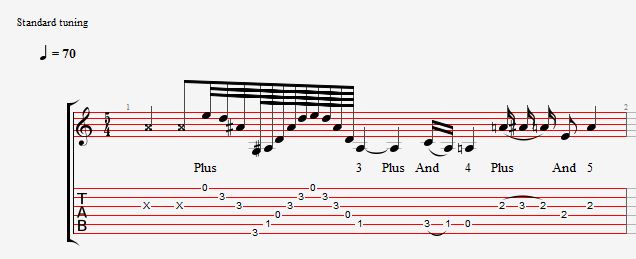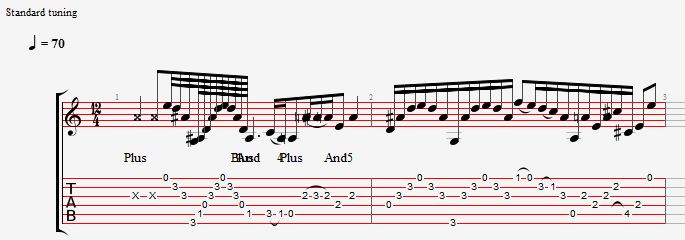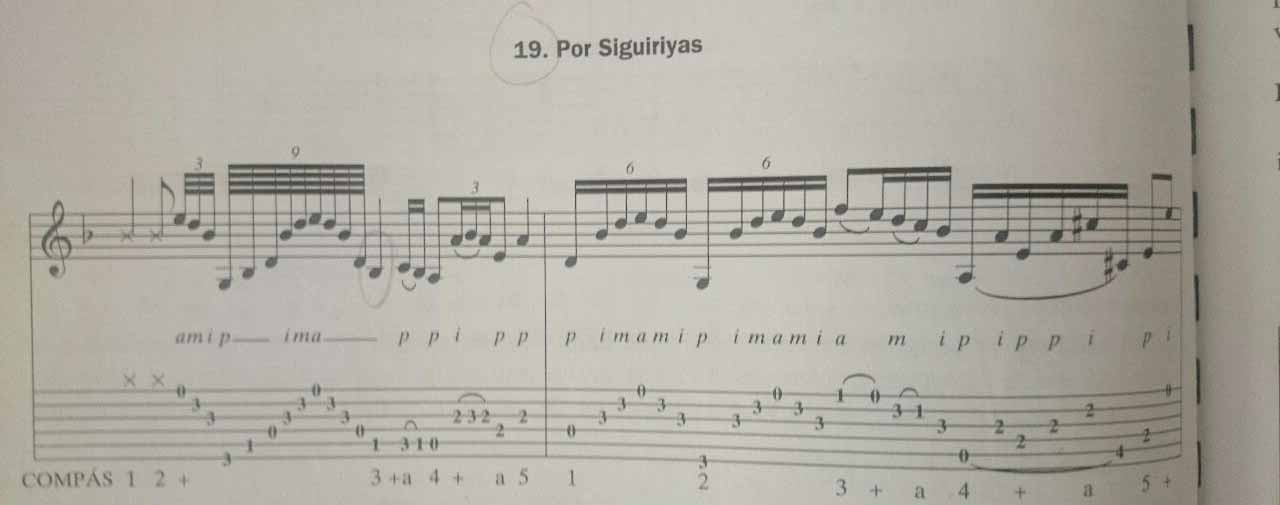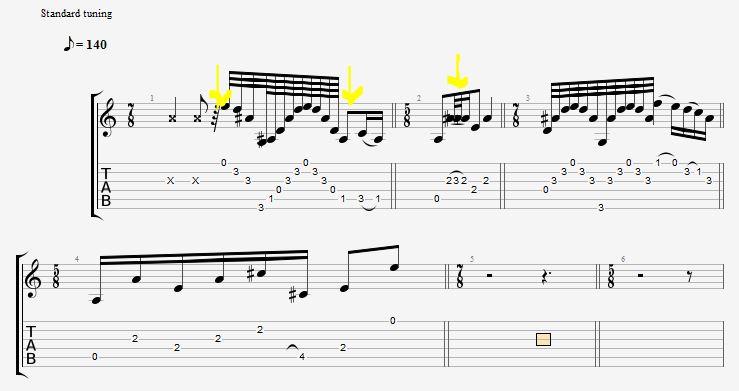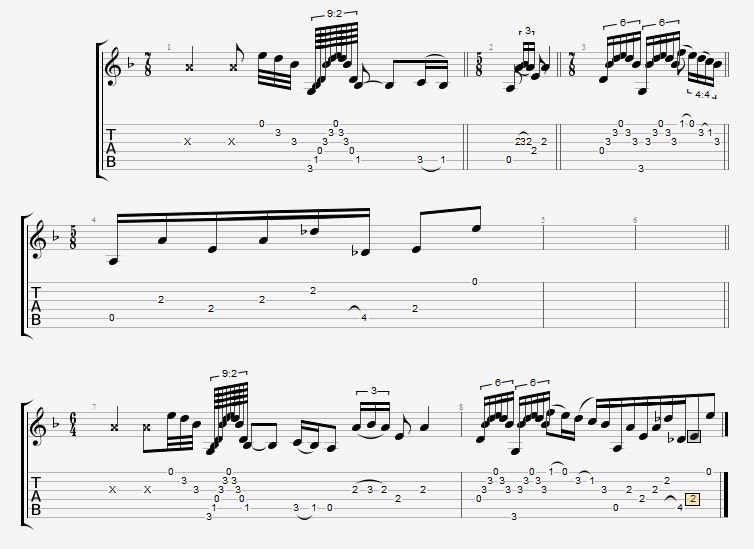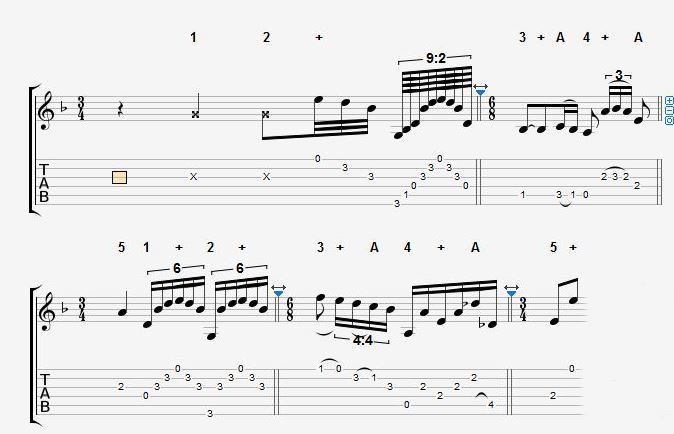|
Ricardo -> RE: Siguiriyas in Guitar Pro (Nov. 1 2016 3:18:01)
|
quote:
ORIGINAL: Mr. T
quote:
Ricardo:
Getting better. The beaming can look better and no need for double bar lines. Try instead of 7/8.... 2+2+3/8. And for the 5 try 3+2/8.
Yeah, space is not well used. Based on a short search i would say that you can't get rid off a double bar in Guitar Pro 6 between beat/measure changes.
Silly perhaps, but i do not really understand what you meant with this;
quote:
Try instead of 7/8.... 2+2+3/8. And for the 5 try 3+2/8.
To clarify. Odd meter refers to rhythm that uses odd numbers not even numbers. 2/4, 4/4,6/4 etc, vs 5/4 or 7/4. Compound meter uses a time signature that refers to a group of subdivided notes that can be felt it groups of "beats". For example 6/8 is normally felt as 2 beats with a division of 3 8th notes per beat. 12/8 same idea except you have 4 beats.
But 9/8 is compound meter but is also ODD...so you can have different ways to express "beats". For example you can have 4 beats in a bar but one of the beats will have an extra 8th note. The beaming of the 8th notes will show how the feel needs to be expressed. A typical 9/8 might be 1&2&3&4&ah, repeat. There is no rule or law that this feel need to be maintained, but it would certainly clarify things if it were understood as 2+2+2+3 8th notes vs other combinations that equal 9. That way the feel can be maintainded despite any synchopations against the beat. Other beaming variants might have the 3 8ths beamed as the first beat, or later 3+3+3 can be used instead of any duple grouping at all, changing the 9/8 meter to more of a 3 beat feel similar to the familiar 6/8 or 12/8 examples mentioned.
So getting back to siguiriyas, if you chose to use odd meter you have different options for beaming the 8th notes to express the beat or accents more accurately.
|
|
|
|
